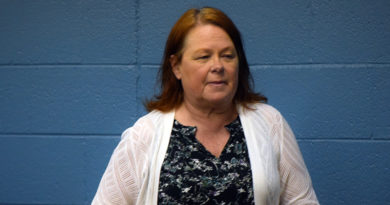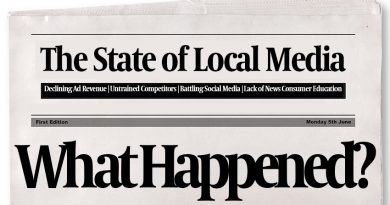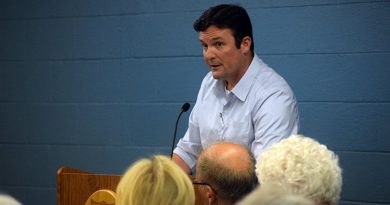Shankland Column: Democracy relies on news literacy, critical thinking
Informed citizenship is vital to a healthy and robust democracy, and as we follow the news in our community, state, country, and the world, it is more important than ever that we scrutinize sensational headlines, ask thoughtful questions, and stand willing to correct our mistakes.
We all share a responsibility to keep our posts truthful, check our facts, and speak up when something doesn’t seem right.
I appreciate that National News Literacy Week is about celebrating our shared duty and responsibility to be smart consumers of news and information, to correct misinformation, and to support quality
journalism.
According to the Pew Research Center, social media has become a more prevalent news source than traditional print newspapers among Americans. While social media can serve as a useful tool when used to inspire, organize, share knowledge, and voice opinions, it can also be used to spread misinformation and to deliberately isolate and alienate people.
How, then, can we distinguish fact from fiction in order to be informed, engaged citizens? By practicing critical thinking and news literacy.
This means looking a little closer at the stories that we see, and putting them in a broader context: Who wrote this? Who paid for it? Do they have a stake in how the story is told? How and why did this arrive in front of me in this form, at this time?
Good news literacy asks us to pause and think before sharing information we don’t know the origins of, and to be curious about the motives of those offering it before accepting it as truth. It means verifying the accuracy of what we post—if it sounds too good to be true, it’s worth checking.
And when we’ve made a mistake—maybe sharing a post from a website with a .co instead of a .com thinking it’s a news source—it means owning it and correcting the post instead of leaving it up for others to share, furthering the cycle.
Every day, we are bombarded with information, and it’s on us to sift through it. I frequently receive trade publications, newsletters, magazines, research journals, and press releases from many sources, and the first thing I do is ascertain whether it is peer-reviewed science, research, opinion, public relations, or something else.
We should do the same with our news and information sources, whether they are in print, social media, video clips, or even memes.
It’s simply utilizing the good research skills we learned in school. Our educators are on the front lines, equipping society with critical thinking and news literacy skills, and I’m very grateful to the teachers and librarians who continue to challenge misinformation through education.
We should also be willing to pay for quality journalism. Too often, we’ve seen legitimate news sources dubbed “fake news” because people did not like what was being reported.
Just as often, we’ve witnessed opinion pieces posted and misconstrued as fact when their content resonated with someone. In these instances, we should practice news literacy, remembering that editorials are not facts and reporting on the facts is not opinion.
Reporters work around the clock to bring us news directly from the source, and we should be willing to honor that by contributing with a subscription so they can make a living wage, instead of expecting them to work for free.
As we celebrate National News Literacy Week, let’s all resolve to practice news literacy. Together, we can help stem the flow of misinformation and support quality journalism in our community, state, and nation so we can all be as informed and civically engaged as possible.
Rep. Katrina Shankland (D-Stevens Point) represents Portage County in the Wisconsin State Assembly.




